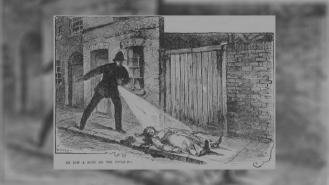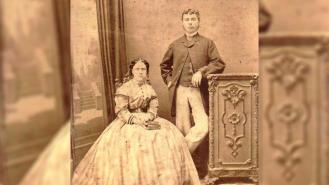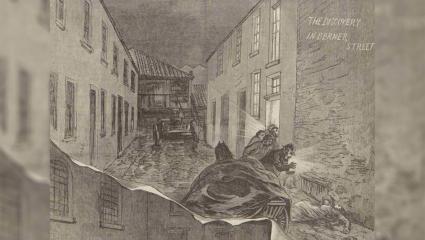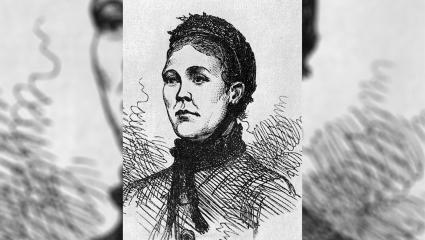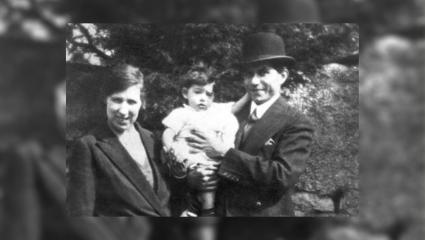
Did Lizzie Borden murder her family?
When it comes to American crime history, it’s hard to get more infamous than the Borden family murders.
Occurring in August 1892 in the town of Fall River in Massachusetts, the case revolves around the murders of Andrew and Abby Borden. The case took the country by storm due to how brutal it was, but it was also unusual because of the main suspect: Andrew’s daughter, 32-year-old Lizzie Borden.
Join us here at Crime+Investigation as we dive deeper into the case of the Borden family murders, the case that marked the beginning of America’s obsession with true crime.
Who were the Borden Family?
Andrew Borden was born into a modest family (despite wealthy relatives) in 1823, but he managed to prosper and build various successful businesses. He was a frugal man despite his accumulated wealth. In 1845, Andrew married Sarah Morse and had three daughters: Alice, Emma, and Lizzie.
The Borden family went through two significant tragedies, as both Alice and Sarah passed away. Alice was only one when she died, while Sarah died in 1863. Andrew went on to remarry a woman named Abby in 1865, who would become a stepmother to four-year-old Lizzie and 14-year-old Emma.
The murder of Andrew and Abby Borden
On 4th August 1892, the bodies of Andrew and Abby Borden were found in the family home. They had been brutally hacked to death with a hatchet. Both Andrew and Abby had been struck multiple times in the head. Andrew had been hit so hard that his nose was severed, and one of his eyes had almost been split in two.
It was Lizzie who alerted the family maid, Bridget Sullivan, to her father's murder. Bridget rushed to get help, but Lizzie’s screams attracted a crowd to the house as well as police attention.
The unsettling nature of the murders, especially Andrews' position as a successful, prominent figure in the area, quickly increased this attention as news of the murders spread.
Lizzie Borden
Lizzie Borden was not initially a suspect, but her behaviour in the aftermath and certain circumstantial evidence led to suspicions turning to her. Lizzie initially claimed she had been in the family barn looking for iron when the attacks happened. She later changed this story, saying that she had been eating pears in the barn.
As well as these inconsistencies in her accounts, Lizzie was also seen attempting to buy deadly prussic acid before her parents' murder. She was prevented from doing so after being denied purchase. She was also seen burning her dress, saying that it had paint stains.
There were tensions in the Borden household between Lizzie, her sister Emma, and her father and stepmother. The family reportedly ate their meals separately, and Lizzie would not acknowledge Abby as a mother, always referring to her as 'stepmother' in interviews.
Andrew’s frugal nature was well known, and some believe that Lizzie killed her father so she and her sister would receive their inheritance. Another theory is that Lizzie was desperate for her own life, as she was still under her father's regime while living in the family home at age 32.
One incident that was particularly upsetting to Lizzie was when her father killed the pigeons in the family barn. Lizzie had been caring for them, and his immediate disdain and ultimate culling of the birds was a prime example of Andrew’s control over Lizzie’s life.
The trial
Lizzie was arrested on 11th August 1892. There was a significant interest in her trial from the public and the media. People from around the country were following the case, and it had plenty of dramatic moments. Lizzie famously fainted when she was presented with the beaten skull of her father.
With a lack of concrete evidence and testimonies defending Lizzie’s character, Lizzie was found not guilty of murdering her father and stepmother on 19th June 1893. After her acquittal, Lizzie and Emma were able to buy a house in another area in Fall River with their inheritance. The truth behind the murders would remain a mystery for the rest of their lives.
Lizzie died aged 66 in 1927, but the gruesome and mysterious nature of the Borden family murders immortalised the case, the victims and Lizzie Borden in American crime history. Not only that, but the case signalled the start of America’s obsession with true crime, a trend that continues to this day.
Want to stay up to date with all things related to crime? Then be sure to subscribe to the Crime+Investigation newsletter. By doing so, you’ll get exclusive access to our latest content completely for free.


